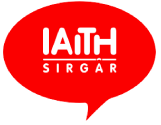Public meetings / events
Page updated: 20/04/2023
Meetings or Events that are Open to the Public

When organising a meeting or event that is open to the public:
- The meeting or event will need to be publicised bilingually, and to the same extent in both languages
- When publicising, you will need to advertise the fact that anyone is welcome to use the Welsh language in the meeting (e.g. including a sentence that indicates this on invitation letters or marketing materials)
- Invitations will need to be sent out bilingually (see correspondence guidelines)
- If you are arranging speakers for an event, you will need to ask them whether they would like to speak in Welsh
- You will need to make sure that any written materials (including agendas, minutes, PowerPoint presentations) are bilingual
- Any press release about the event will need to be bilingual
Remember: You will need to plan the meeting bilingually from the very beginning. Map out what you will need to have bilingually (PowerPoint presentations, agendas, minutes, leaflets, notice boards etc).
In the meeting or event that is open to the public:
You will need to ensure that both languages are treated equally.
- If the meeting is not held through the medium of Welsh, you will need to arrange a simultaneous translation service so that everyone can understand all the contributions
- You will need to inform people at the start of the meeting that they are welcome to use the Welsh language
- You will have to inform everyone that a translation service is available and test the equipment at the start of the meeting to make sure it is working
- Any materials will have to be bilingual (PowerPoint presentations, posters, notice boards) and it will need to be of the same layout and standard in both languages
- If you will be announcing any messages on a loudspeaker system, they will need to be bilingual, with the Welsh first
Encouraging the use of Welsh in public meetings or events.
Remember people need to be encouraged to use their Welsh in meetings. People tend to use the language that everyone understands rather than the language they would prefer to use.
Remember that the above is also valid for events that are arranged on the council’s behalf, or in partnership (if the council is funding at least 50%).
Here is a checklist to ensure that you are encouraging the use of the Welsh language in the event:
- Is the Chairman or presenter using Welsh in his presentations in order to establish the bilingual nature of the meeting?
- Is there someone greeting people in Welsh as they arrive?
- Are the Welsh speaking members of staff present wearing ‘Iaith Gwaith’ badges?
- Are you displaying ‘Iaith Gwaith’ posters to publicise the fact that it is a bilingual event?
- Are you ensuring that Welsh is used in the links between speakers?
- Are you inviting questions in both languages?
- Have you organised for some of the discussion groups or workshops to be through the medium of Welsh?
- Have you asked contributors to present Welsh?
We have developed a series of sound clips which will help you to pronounce words, terms and phrases that you might be unsure of. These include:
Further information:
- Example: How to arrange a meeting by e-mail (.pdf)
- Example: Meeting agenda template (.pdf)
- Download "Meeting or Events that are Open to the public" (.pdf)
- For further advice e-mail: iaithgymraeg@sirgar.gov.uk.
- To read the Standards (Standards 30-38, 41, 46, 87, 129), go to: www.comisiynyddygymraeg.cymru.
Working for us
Staff induction
Working bilingually
- On the phone
- Correspondence
- Public meetings / events
- Closed meetings / events
- Writing in Welsh and your Computer
- Signs, leaflets, forms etc.
- Recruitment
- Sound clips
- FAQs
- Interpreter translation in Microsoft Teams
- Regulations
Officer Code of Conduct
- Principles of Conduct in Public Service
- Personal Conduct
- Political Neutrality
- Personal Interests
- Gifts and Hospitality
- Awarding and Managing Contracts
- Using Council Resources and Information
- Breaching the Code
- Managing Others and Secondary Employment
- Covert Surveillance procedures
- Frequently Asked Questions
More from Working for us
